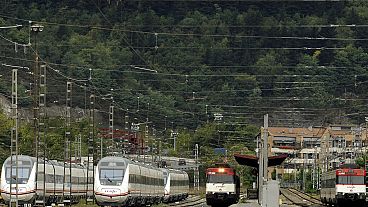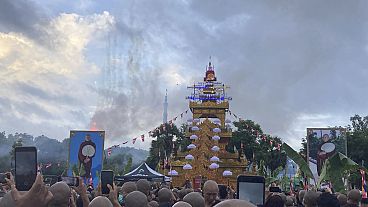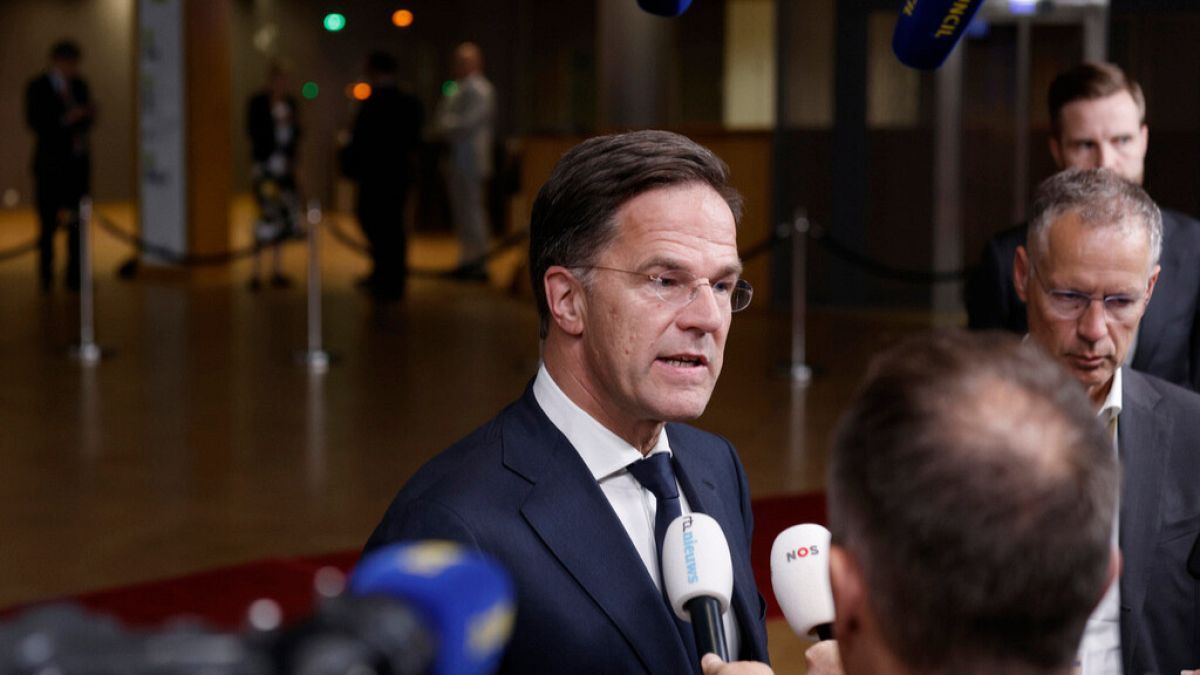Earlier, Hungary's Prime Minister Viktor Orban had vetoed his outgoing Dutch counterpart for the military alliance's top job over objections including spending the country's money on supporting Ukraine.
Mark Rutte is lined up to become the next head of NATO after Budapest lifted its veto on the deal following a letter sent by Rutte to Hungarian PM Viktor Orbán.
The letter appeased the Hungarian premier that, as head of NATO, Rutte would not deploy Budapest's military or spend Hungary's money on supporting Ukraine.
After Orbán announced he had dropped his previous objections to the outgoing Dutch prime minister, incumbent NATO Secretary General Jens Stoltenberg reported that the selection process would end "very soon".
Orban posted a copy of the letter he was sent on X, writing, "After yesterday’s meeting in Brussels ... Rutte confirmed that he fully supports this deal and will continue to do so, should he become the next Secretary General of NATO."
In his letter, Rutte wrote that he would honour the deal cinched between Stoltenberg and Orban in Budapest last week, which confirmed that Hungary would be left out of NATO's support for Ukraine.
Rutte also mentioned that he had taken note of unidentified remarks he had made about Hungary in 2021 that had caused dissatisfaction within the Hungarian government.
The 57-year-old Dutch politician assured Orban in writing that Hungary's troops and funds would not be involved in NATO's support for Ukraine.
Decisions in NATO are made via consensus between all members. Therefore, Hungary's veto on Rutte's leadership meant that he was blocked from ascending to the top position in the alliance.
Further objections?
Rutte has the approval of most NATO allies, including the US and Germany. Turkey previously opposed Rutte's bid but backtracked into approving him in April.
Among the 32 member states of the alliance, only Romania remains undeclared. The country's President Klaus Iohannis announced his own bid to become the next NATO secretary general in March, yet failed to drum up as much support as Rutte.
Rutte is known for being the longest-serving Dutch PM in history, having led four coalition governments since 2010.
NATO is set to hold its annual summit in Washington in July, after which Rutte is expected to take over the helm of the alliance from Stoltenberg. The summit will focus on how to ensure long-term military support for Ukraine.
As head of NATO, Rutte would have to decide how to support Ukraine and deal with potential US president Donald Trump during his tenure. Trump is a well-known sceptic of the alliance and has threatened to quit unless other members boost their defence spending.












